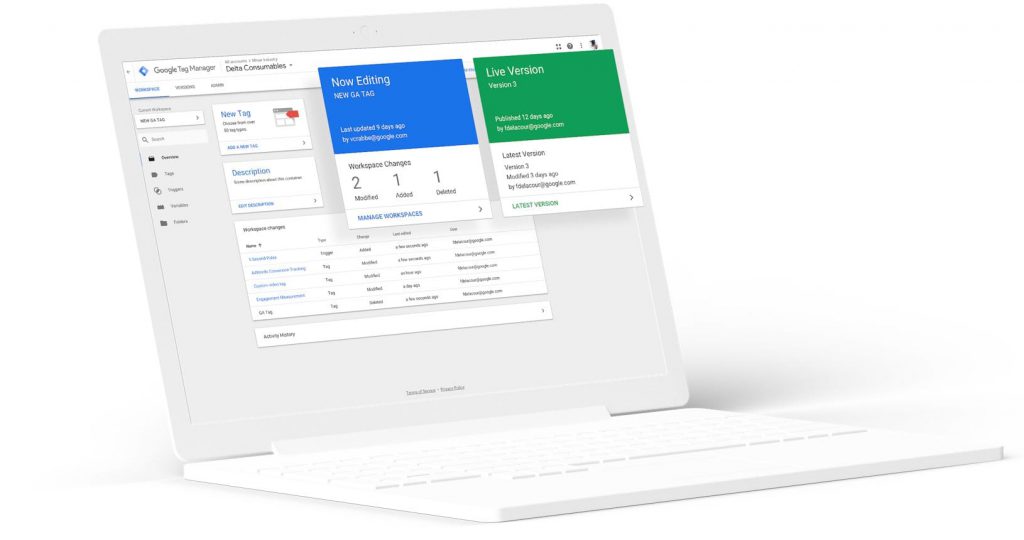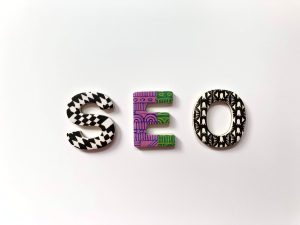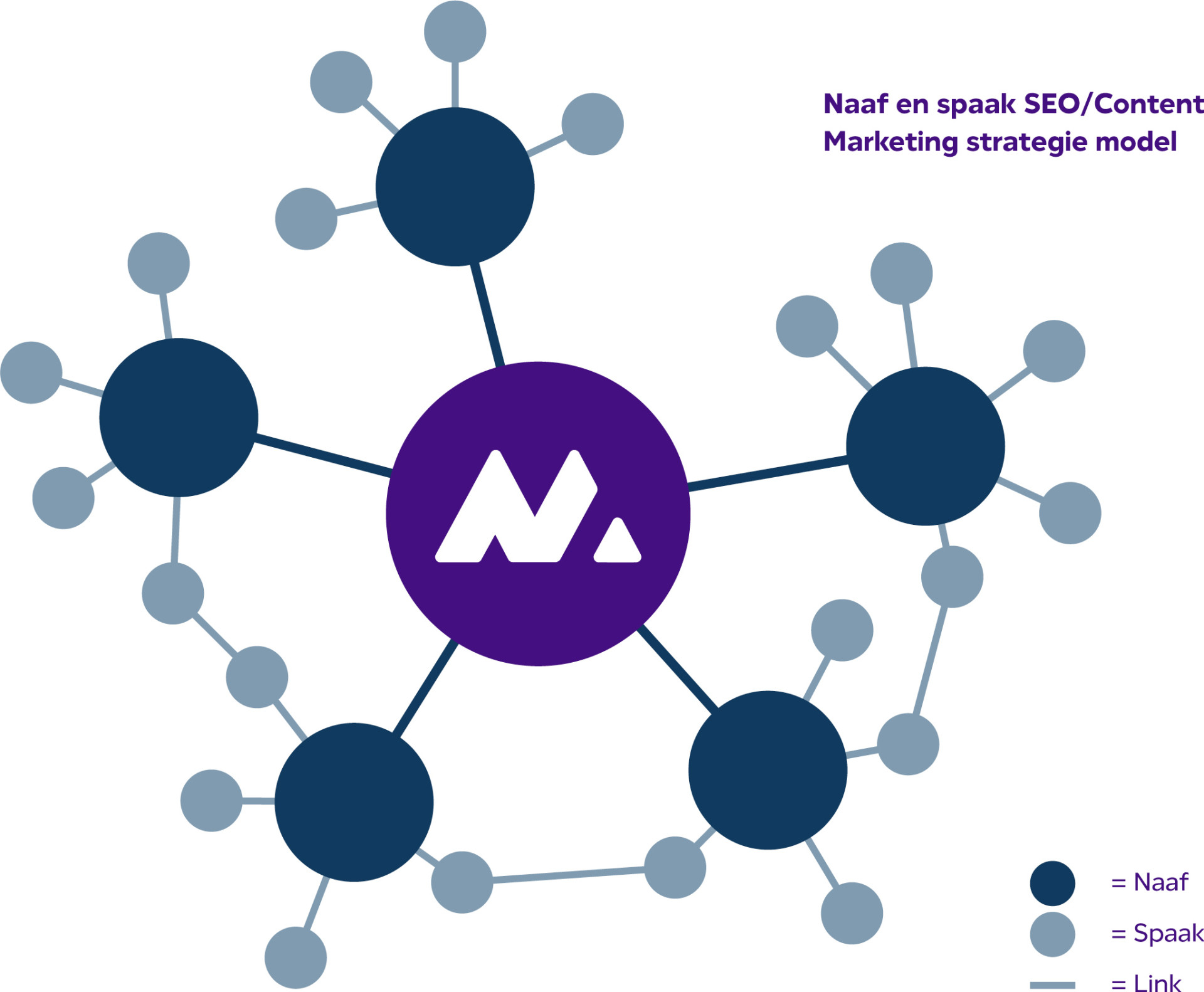Online marketing
Comprehensive Information on Online Marketing
Discover everything about online marketing on this page. Scroll down for an overview of topics and frequently asked questions.
What is Online Marketing?
Online marketing involves the use of digital tools and channels to promote and sell a brand, product, or service on the internet.
The online marketing landscape is vast and diverse, with channels such as your website, newsletters, social media, and email. Online marketing encompasses all the ways we utilize these channels and the techniques we apply, such as SEO, SEA, and content marketing.

Leveraging various tools leads to Online Marketing success
In various articles, we explain the techniques, goals, and strategies behind online marketing. On this page, we’ve gathered summaries and answers to frequently asked questions. Want to read more about a specific topic? Click the link to the full article. Can’t find the answer to your question? Send me an email with your query, and we’ll gladly assist you and add the answer to this page.
Organically High in Google: What is SEO and How Does it Work?

How do you achieve a high position in Google?
For many, securing a top spot on Google is rightfully a goal. Being found on the right terms can bring you visitors and leads. But how do you achieve that high position without Google Ads? The short answer: by employing various SEO techniques and crafting the right content to engage search engine crawlers. These bots scour the internet and index websites, with Google determining the final ranking in results through a secret formula. Achieving an organic top position on Google is influenced by several factors:
- Links to your website
- PageRank, the assessment of your website
- Reputation and trust: How do visitors behave? Do they value the information, and are you building a reputation or not?
- Do you offer valuable information?
Above all, the user is becoming increasingly central in search engine optimization. Curious about why or how to apply this? Discover more about the various factors, SEO optimization, and the role of the user in ‘High in the search engine, how does SEO actually work?’
How do I develop an SEO strategy?
It might sound more complex than it is because you can make SEO as difficult or as easy as you want. Just starting with SEO? First, get the basics in order. In practice, 90% of companies can gain significantly with a simple SEO strategy that you can set up in 3 easy steps:
- Keyword research
- Technical SEO
- Content marketing

Traffic to merkelijkheid.nl quadrupled over the past 5 years from 2,500 to 10,000 visitors per month solely through our SEO strategy
SEO means optimizing your website so that Google finds, indexes, and ranks it highly in its search results. In our SEO strategy, we blend technical optimization with keyword research to understand what our audience is searching for. This research forms the foundation for the content marketing that will captivate our audience.
Are you crafting your own SEO strategy and want to delve deeper? Read our full blog ‘An SEO Strategy in 3 Steps’
Why Conduct Keyword Research?
 Search engine marketing consists of two streams, SEO and SEA. A solid keyword research is fundamental for both. Based on this research, you make decisions about your content and ads while gaining valuable insights about your audience. From comprehensive keyword research, you will at least learn:
Search engine marketing consists of two streams, SEO and SEA. A solid keyword research is fundamental for both. Based on this research, you make decisions about your content and ads while gaining valuable insights about your audience. From comprehensive keyword research, you will at least learn:
- Which keywords your audience uses
- What the search intent is, what information is your audience seeking?
- New insights into your audience’s customer journey
- The value of a keyword
In ‘Online Marketing Begins with Google Keyword Research and Analysis’, you can read more about the different factors we investigate during keyword research and the insights you can derive for your SEO and SEA strategies.
What is Content Marketing?
The definition of content marketing is as follows:
Content marketing is a strategic marketing approach focused on creating and distributing valuable and relevant content with the ultimate goal of attracting or retaining a clearly defined audience.Want to read more? Check out ‘Content Marketing: What Exactly Is It?’ where we delve deeper into the origins of content marketing and explore a case study from American Express.
Why Is Content Marketing an Indispensable Part of Online Marketing?
This shouldn’t even be a question anymore. After all, who hasn’t heard the phrase Content is King? It’s a cliché, but true, even in the digital realm. We can’t think of any reason not to engage in content marketing. Need a few more arguments? Here are 5 reasons to dive into content marketing right away:
- Content marketing might seem challenging, but it’s actually very accessible. The internet is the most accessible medium we know.
- Everyone is online, including your customers.
- Content marketing is crucial for your online visibility.
- With content marketing, you enhance customer loyalty throughout the customer journey.
- By publishing your own content, you take control of your image and authority.
Want to learn more about these 5 reasons? Read ‘What Is Content Marketing? 5 Reasons to Start Right Now!’ and then begin your content marketing journey immediately.
Why is content important for SEO?
 When you think about improving your SEO, content marketing might not be the first thing that comes to mind. But don’t underestimate the power of content! There’s a significant overlap between SEO and content marketing; in fact, content forms the very foundation of your SEO strategy. To truly weave successful SEO into your marketing tapestry, you need the words, articles, and sheer volume of content marketing. Still skeptical? Here are 9 more reasons why content is the heartbeat of SEO:
When you think about improving your SEO, content marketing might not be the first thing that comes to mind. But don’t underestimate the power of content! There’s a significant overlap between SEO and content marketing; in fact, content forms the very foundation of your SEO strategy. To truly weave successful SEO into your marketing tapestry, you need the words, articles, and sheer volume of content marketing. Still skeptical? Here are 9 more reasons why content is the heartbeat of SEO:
- The goal of SEO is often to attract more visitors. Content gives visitors a reason to return.
- Great content showcases expertise and builds authority, a magical tool to persuade potential clients of your knowledge and skills.
- Offer the right content, and you’ll attract visitors at various stages of the customer journey. You’ll capture the attention of potential clients, transforming mere visitors into leads!
- Social media is the new word-of-mouth, and social shares are considered by Google in your website’s ranking. With compelling content, you have something valuable to offer on social media too, hitting two targets with one arrow.
Discover the other five reasons why SEO can’t thrive without content in ‘9 reasons why great content is essential for SEO’
How do I create a content strategy?
With these four simple steps, you can craft a content strategy that’s both successful and sustainable:
- The goal of content marketing and KPIs. Determine your goals and identify which KPIs will support them, making your efforts measurable.
- Define your audience and content needs. Identify your target audience and conduct keyword research to discover what content they seek and desire.
- Time for a brainstorm!You know what your target audience is searching for, now think about the content you can offer them.
- Consider how you will approach content distribution. How, where, and how often will you spread your content? With effective distribution, your content delivers lasting value.
Looking for examples of online marketing KPIs or want to read more about content distribution and other elements involved in crafting a content strategy? Read ‘A Content Strategy in 4 Steps’
How Does My Website Structure Affect SEO?
You have a SEO and content strategy, regularly share valuable content, and are working on optimizing your website for SEO. If you’re ready for the next step, consider taking a closer look at your website’s structure. How is your website structure organized? And does it enhance your SEO?

Indeed, website structure does influence your SEO. A good internal linking strategy helps Google read and appreciate your website even better. We use the hub and spoke model to integrate SEO and content marketing into the website structure, where various smaller blogs support a single page with substantial content. With the hub and spoke structure, you build the authority of your key pages, increase visibility for linking pages, and make it easier for the Google crawler to understand your website.
Ready for the next step in SEO and Content Marketing? Then read our article ‘Advanced SEO: Hub and Spoke Content Marketing Strategy’
What is Domain Authority?
Domain Authority is a score from 1 to 100 that predicts how high your site will rank in Google. The higher your score compared to competitors, the greater the chance your website will appear at the top of search results.Domain Authority itself says very little. However, in comparison to your main competitors, it is the KPI for the success of your online marketing strategy. Your Domain Authority is determined by the number of links and domains linking to your website, your internal link network, and the technical optimizations on your website.
Learn more about how to use and increase your Domain Authority in our article ‘Domain Authority: making online marketing measurable’
How does Google Ads work?
Reaching the top of Google is a dream for many organizations. Rightly so, as Google is by far the most used search engine in the Netherlands and most other countries. However, SEO is a long-term marketing strategy; you won’t reach the top overnight. We believe in SEO and the importance of organic visibility, but what if you want to see results faster? Consider Google Ads. We always recommend a combination of SEO and SEA, as this approach fosters success in both the long and short term.
SEA stands for Search Engine Advertising, and we almost always mean Google Ads by that. Paid search results are the advertisements of brands that pay the most to appear there. For a particular search query, such as ‘applying for a mortgage,’ companies pay a certain amount to appear to the searcher. You enter a keyword and the corresponding bid, and you’re ready to go!
Okay, it’s not entirely that simple. Want to know more about Google Ads and how it works? Read our article ‘Top of Google: search engine advertising (SEA) explained’